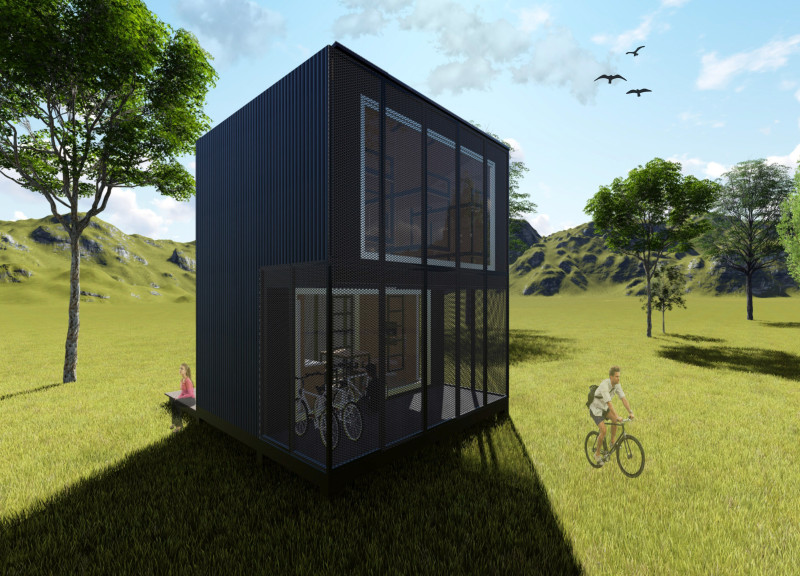5 key facts about this project
The Bike Box serves as a modular unit accommodating the specific requirements of bike travelers. Its design prioritizes efficient use of space while ensuring a comfortable living environment. Each element of the project is methodically planned to enhance user experience through careful consideration of spatial organization and material selection.
Sustainable Design Features
The project distinguishes itself through its commitment to sustainable architecture. The primary structure is supported by a robust metal frame, ensuring durability and stability. A double skin envelope is integrated into the façade, which improves thermal performance while minimizing energy loss. Furthermore, the incorporation of solar panels on the roof actively contributes to energy self-sufficiency. These elements collectively underscore a strong focus on reducing environmental impact.
The use of recycled materials throughout the construction process also sets this project apart. Materials like oriented strand board (OSB) for interior finishes provide both cost-effectiveness and significant aesthetic value. The thoughtful integration of double termo glass windows maximizes natural light, fostering a welcoming atmosphere while maintaining energy efficiency.
Functional Layout and User-Centric Design
Spatial organization is critical in The Bike Box, wherein each area is strategically designed to serve distinct functions. The project features sleeping quarters that prioritize privacy and comfort, along with communal spaces that encourage interaction among occupants. Additionally, dedicated storage areas for bicycles and gear are essential, acknowledging the primary users’ needs for security and convenience.
Unique design approaches enhance the project’s adaptability. The modular nature allows for future modifications without necessitating extensive structural changes. This flexibility addresses varying user needs effectively, facilitating a sense of community while accommodating individual preferences.
In summary, The Bike Box integrates sustainable practices, innovative materials, and a user-centric layout to redefine temporary housing solutions for cyclists. To gain a deeper understanding of the architectural ideas and the design processes involved, the reader is encouraged to explore the project presentation further, including architectural plans, sections, and other relevant design documents.


























